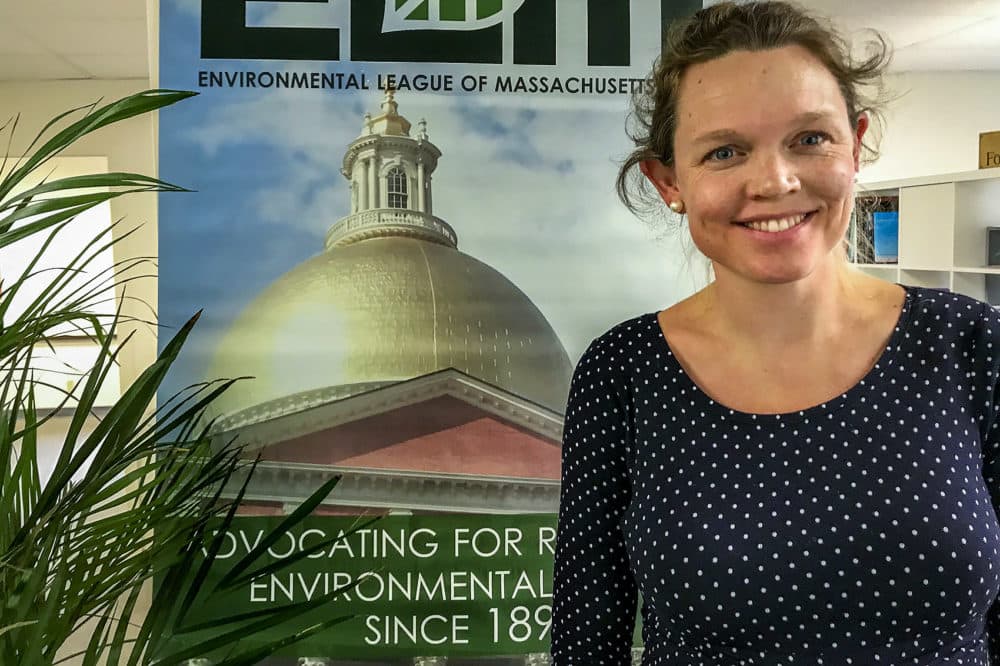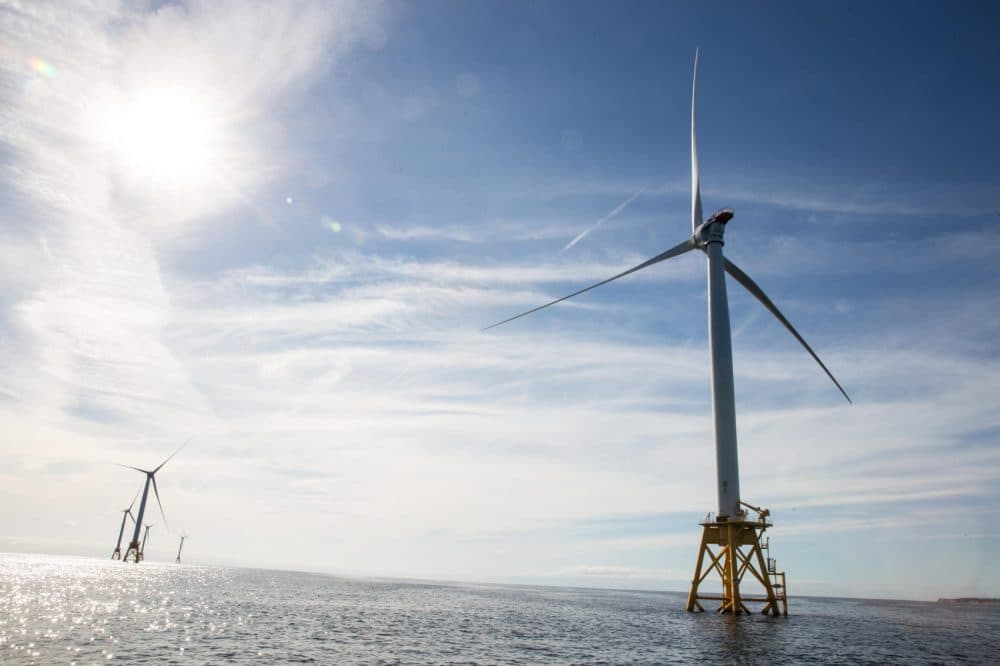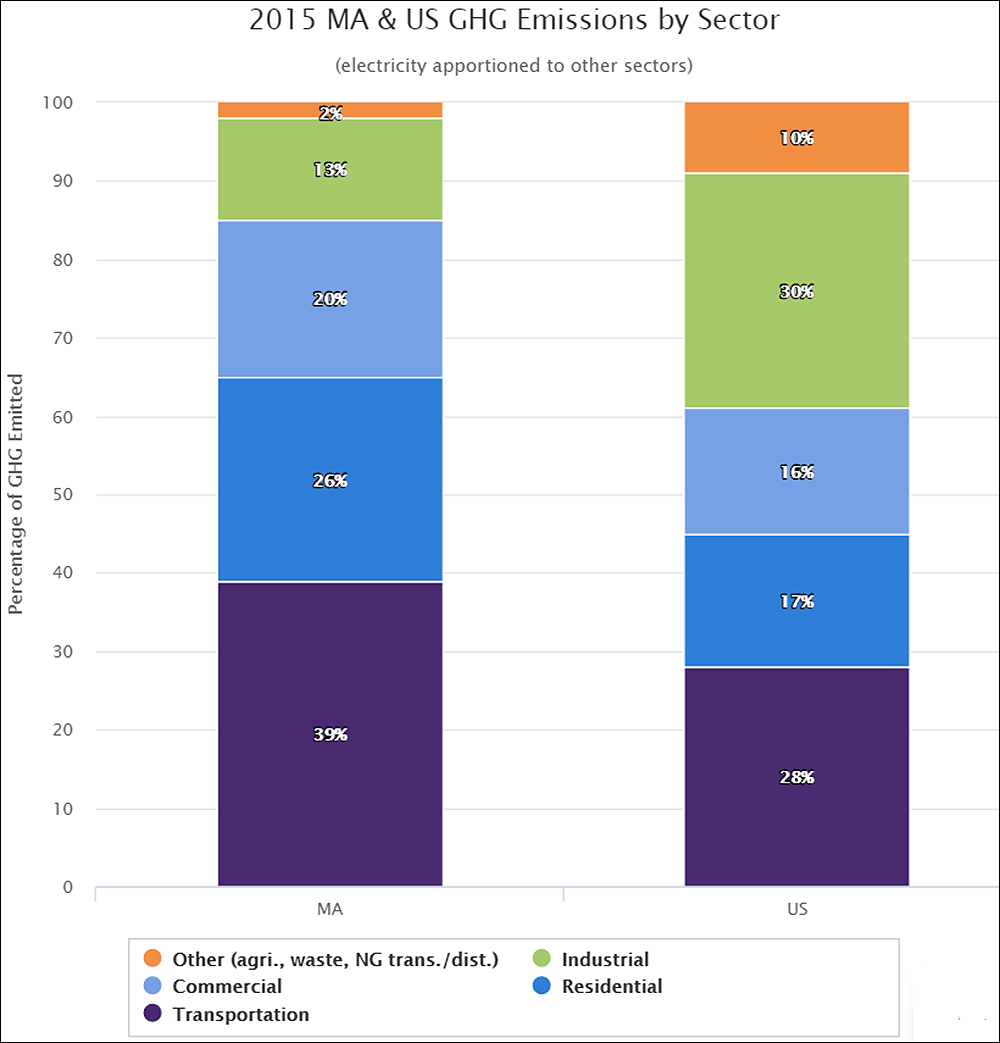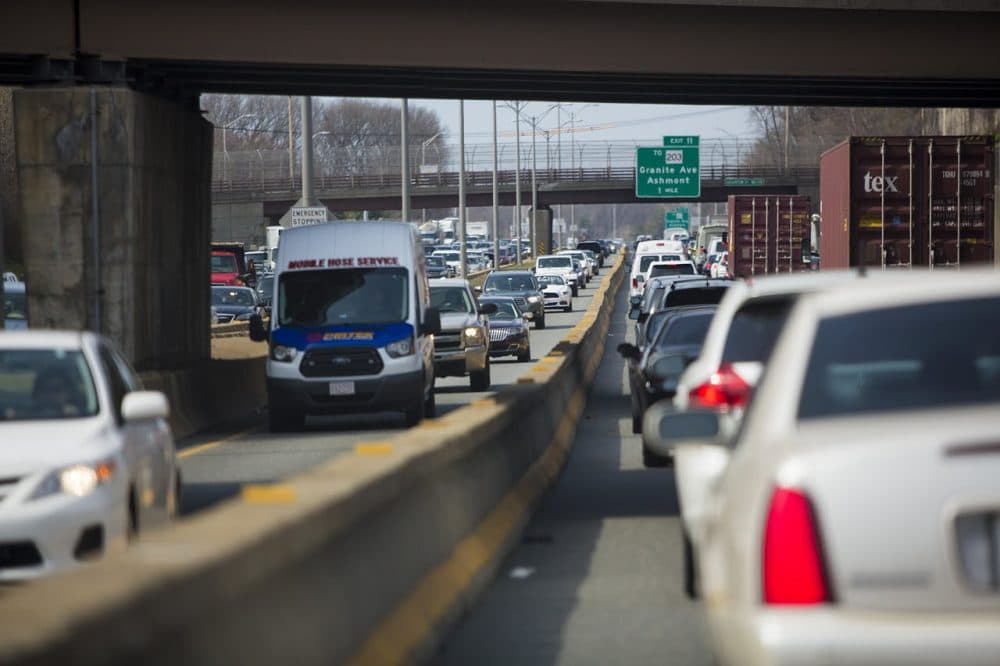Advertisement
How The 2 Candidates For Governor Compare On Environmental Issues
Resume
Massachusetts environmental politics and policies take center stage Thursday at Boston's Museum of Science.
There, Republican Gov. Charlie Baker and Democratic nominee Jay Gonzalez will take turns discussing their environmental records and plans for the state's future.
The forum takes place four years after Baker, who was then running for his first term, pledged to increase environmental spending in Massachusetts.
"I committed a long time ago to getting to 1 percent of the budget again with respect to the state's environmental agencies," he said then, adding he was surprised and disappointed to learn that the last time 1 percent of the budget went to fund environmental issues was when he served in Gov. William Weld's administration in the 1990s.
"While it may not happen immediately," Baker said four years ago, "I can promise you we'll get there over the course of my administration."
When Baker took office in 2015, he inherited an unexpected $1 billion deficit. The budget is now balanced, as required by state law, but as governor, Baker hasn't made good on his environmental spending pledge.
That disappoints environmental groups around the state.
"We didn't think that a penny of every dollar was too much to ask, but the budget hasn't budged," said Elizabeth Henry, president of the Environmental League of Massachusetts. "We're still at about 0.57 percent. So a little more than half a penny and that's a little more than a couple hundred percentage points when he took office."
The 120-year-old league is one of a seven organizations in the state that annually present the governor with an energy and environmental report card. It grades in 27 categories, from climate change adaptation and maintaining forests, to reducing the use of toxic chemicals. For the last three years the Baker administration has gotten a grade of C -- passing but not making good on its promises.
The eco-groups say they're disappointed in this year's score, saying Massachusetts is lagging in many areas where it should be leading. Baker got nine Ds and two Fs, with flunking marks in water pollution control and protecting the environment from dangerous facilities like waste incinerators. The review also blames the governor and the Legislature for deep cuts in the state environmental workforce.

"I wouldn't have guessed it was as bad as it is," Henry said. "But the agencies are really hollowed out. They are chronically under-resourced."
Especially hard hit, according to a Green Budget Coalition report, is the Department of Conservation and Recreation (DCR), which has lost nearly 400 full-time positions — 30 percent of its workforce — over the last seven years. According to the report, "the entire state is served by only one 15-person maintenance crew."
"Our parks are falling apart," Henry said. "What could be our crown jewels we treat like cubic zirconia."
DCR refutes that maintenance assertion from the report, and says it has more than 40 employees who perform asset maintenance, in addition to hundreds of other employees who help maintain the parks.
But Baker does get top scores in several environmental areas, including the state's Municipal Vulnerability Preparedness Program, which is designed to help cities plan and prepare for climate change.
"We're really seeing leadership there," Henry said, ticking off some of the other scores in the report card. "He gets an A for culvert and dam removal across the state. The Division of Ecological Restoration really punches above their weight. The food waste ban was an A. Renewable energy was a B. And we got a lot to be proud of for offshore wind."
Earlier this year, Massachusetts' secretary of energy and environmental affairs, Matthew Beaton, announced the winning company chosen to build the nation's first industrial-sized wind farm off the coast of Martha's Vineyard. Proponents say the state has the potential to become "the Saudi Arabia of wind."
"We are currently pursuing the greatest amount of renewable energy in the commonwealth's history," Beaton said. "There will be great benefits that come by way of jobs and local benefits and supply chain development of this specific project, and it sets the stage for a great future for offshore wind" in Massachusetts.

But less successful have been the Baker administration's attempts to bring more clean-energy hydropower from Canada to Massachusetts. Environmental groups in New Hampshire and Maine have opposed proposals to build transmission lines through their states.
Still, clean energy is one of the fastest-growing segments of the state's economy. It is an $11.4 billion-a-year industry that employs 109,000 workers. That is twice the number of coal miners in the entire country.
Massachusetts is the most energy-efficient state in the nation — for the eighth year in a row. But we spend $22 billion a year on energy. About 80 percent of the money is sent out of state to buy fossil fuels that emit climate-changing greenhouse gases that scientists say increase the severity and frequency of storms.
Last January and again in March, blizzard winds and blinding snow lashed the state, destroying concrete seawalls along Massachusetts' coastline.
Baker was in Scituate the day after the early spring storm, vowing to help coastal communities fend off the effects of climate change. Standing next to a damaged barrier, he said, "It's really important for us to put time, money and resources into resiliency and adaptability because storm surges are something we're going to see more frequently."
Baker proposed and recently signed a $2.4 billion environmental bond bill that will beef up critical infrastructure to adapt to and mitigate the effects of climate change.
The Environmental League's Henry praises the move, but says environmentalists want to see more leadership in addressing climate change, especially when it comes to emissions from transportation.

"Today, 40 percent of the greenhouse gases in Massachusetts come from vehicles," Henry said. "So a real vision for transportation, particularly as regards to emissions ... is something that the next governor ... whether it be Baker or Gonzalez, really has the opportunity to put the commonwealth on a bold path."
Henry calls Gonzalez "a quick study when it comes to environmental issues." Gonzalez has embraced nearly every recommendation in a 35-page Environmental Policy Briefing Book eco-groups put together for the election.
Gonzalez staked out his position at an environmental forum in April for Democratic primary candidates.
"One of the areas where we are falling behind and desperately need leadership is in taking on climate change and environmental protection," he said. " I am an environmentalist. I have spent my entire adult life working on environmental issues."
As an attorney in private practice, Gonzalez said he represented many local governments, helping them finance clean water infrastructure and municipal solar systems, and clean up hazardous brownfields. Later he worked in the Deval Patrick administration as secretary of administration and finance. It is the same position Baker held in Weld's cabinet.
Gonzalez told the environmental groups: "I increased investment to record levels in land conservation, urban park development, [and] initiated and developed the accelerated energy program to green 700 state facilities in 700 days."
Massachusetts' mandated goal is to reduce overall climate emissions 25 percent by 2020 from 1990 levels and 80 percent by mid-century, but at last report, emissions had actually gone up and it is unclear we will hit the near-term target.

So far 70 percent of the emission reductions have come from the state's electric power generators. Getting cuts from mobile emitters — cars, trucks and mass transit — will be much more difficult, but Gonzalez says he wants to make Massachusetts the first state with a tax on carbon-based fuels. He would use the funds to subsidize renewable energy sources and eliminate fossil fuels.
"Electrifying our transportation system overall is a huge part of how we're going to reduce greenhouse gas emissions and get to our goal," Gonzalez said.
Baker takes an "all of the above" approach to energy. He has supported the construction of new natural gas pipelines along existing right-of-ways. Gonzalez opposes building more pipelines.
However, both candidates signed a pledge to increase development of wind energy projects off the coast of Massachusetts, so long as it is economically advantageous.
But while energy and environmental issues are critically important to the state's future and the fate of the planet, Henry acknowledges they are not the top concerns of most voters.
"They're thinking about the economy, they're thinking about education, they're thinking about health care," Henry said. "But we know across the commonwealth there are about 600,000 high scoring environmental voters, people for whom the environment is the No. 1 or 2 issue. And that's a lot."
Nearly 2.2 million ballots cast were cast in the 2014 election. Baker won by just 40,000 votes.
From that perspective a block of 600,000 environmental voters is a lot.
Thursday's 4 p.m. forum is sponsored by 18 of the state's environmental organizations. The Environmental League of Massachusetts will live stream it on its Facebook page.
This segment aired on October 11, 2018.
